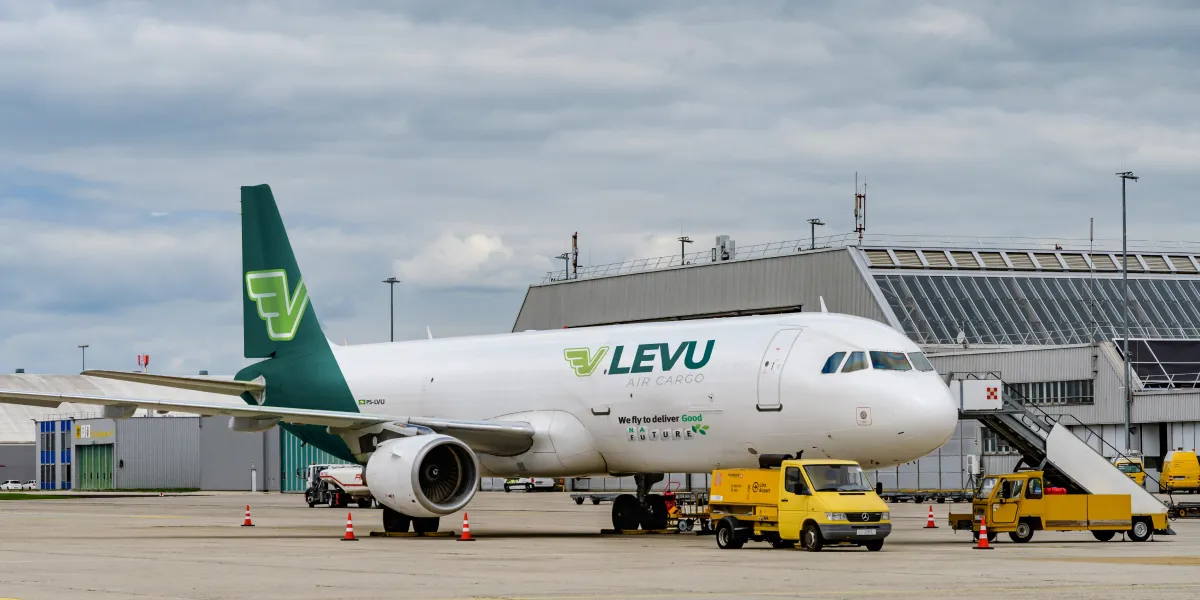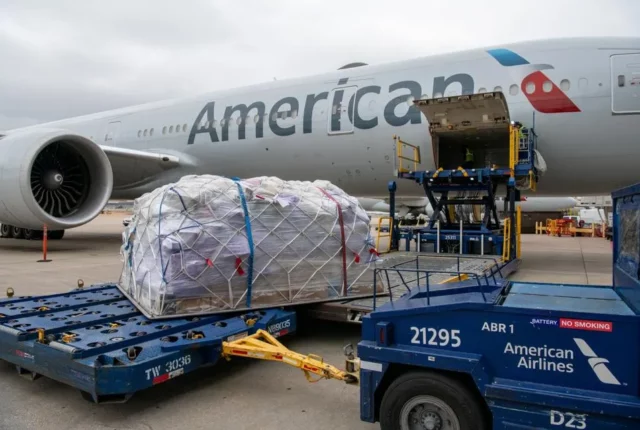
Cargo operations at Brazil’s Guarulhos Airport near collapse
Cargo operations at Latin America’s largest air cargo gateway, Sao Paulo’s Guarulhos Airport (GRU), are on the verge of a meltdown.
Airline groups are appealing to the federal government to impose emergency measures, including a five-day embargo for dry cargo, in a last-ditch effort to avert the collapse of cargo traffic at the airport.
Video footage of the airport shows warehouses overflowing with cargo and rows of pallets outside, some occupying aircraft parking positions.
In a letter to the Minister for Ports and Airports, the signatories – the Brazilian Association of Airlines, Latin American Air Transport Association and Board of Airline Representatives International Airlines in Brazil – call for “emergency measures in the face of the calamitous situation regarding the deficit in cargo processing”.
The letter outlines that warehouses “no longer can take cargo”, which has forced pallets to be stored in the open in yards and plane parking positions. It notes that one carrier alone had more than 600 full containers awaiting processing.
“This situation [has] reached its peak, generating an unsustainable and chaotic situation, with imminent risk of collapse of air operations and impacts on safety in the main Brazil airport,” the letter warns.
The associations claim the disastrous situation is the result of “lack of labour at the dealership, combined with slowness and bureaucracy in the processes, including by government bodies such as ANVISA [National Health Surveillance Agency], Federal Revenue and VIGIAGRO [Ministry of Agriculture and Livestock]”.
Moreover, they mention a shortage of essential equipment, such as dollies and ULDs, and that arriving aircraft do not manage to have their holds emptied, which also reduces space for export cargo and luggage.
Passenger traffic is also seriously impacted.
In order to avoid a complete breakdown of cargo operations, the airline associations call for immediate measures, starting with an embargo on dry cargo, including e-commerce, for an initial period of at least five days, when only perishables, pharmaceuticals, aircraft parts for emergency repairs and cargo in transit should be admitted – “the latter duly separated and without mixing with cargo destined for GRU”.
One airport user, in a blog post, commented that it had become essential to divert cargo to other Brazilian airports.
In addition to the embargo, the airline interest groups want the immediate establishment of a task force of employees from involved authorities that should work with Guarulhos Airport, which holds the concession to manage the airport, to unclog the system and normalise entry and exit flows of cargo and baggage.
Thirdly, to normalise operations at GRU, it would be essential to enable bonded truck operations to take cargo to other airports for customs procedures, the authors wrote.
The airlines noted that repeated letters had been sent to the concessionaire and other involved agencies, like the National Civil Aviation Agency, to alert them of the worsening problems at GRU.
While of unprecedented gravity, the situation at the airport evokes a sense of déjà vu. By early December last year, large numbers of shipments had accumulated at GRU, some exposed to the elements outside the cargo terminal, with some stuck at the airport for over two weeks. Some international airlines temporarily suspended operations at the airport.
Guarulhos Airport at the time blamed the problems on the occurrence of three holidays, plus Black Friday, in November, and the “intermittence of the cargo and transit control system at the beginning of the month”, which slowed down the processing of goods in the receiving, storage and release areas.
Last year’s problems don’t appear to have given the authorities pause for thought about changing concessionaires. In late October, Brazil’s Federal Accounting Court approved an agreement between the government and GRU Airport to extend the concession contract by 16 months, in exchange for a series of investments. The National Civil Aviation Agency also endorsed the agreement.
And management at Rome’s Leonardo Da Vinci Airport may be having second thoughts about its venture with Guarulhos Airport. In February, the pair signed an MoU to establish a certified pharmaceutical tradelane. Pharma shippers may be taking a dim view of the problems at GRU.
Source: Article






